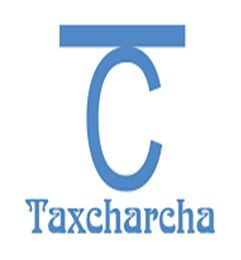The GST Council from time to time has made certain changes in the GST Act to made it more powerful. On recommendations of the GST Council, the Government has introduced GST Amendment Act, 2018 in August, 2018 and the amendments introduced through it is made effective from 01st Feb, 2019. Below is the list of such changes which is effective from 1st Feb, 2019.
- The threshold limit for mandatory registration under GST has been increased from Rs. 10 lakhs to Rs. 20 lakhs in the States of Arunachal Pradesh, Assam, Himachal Pradesh, Meghalaya, Sikkim and Uttarakhand.
- The charging provisions of Section 9(4) has been amended and Government has been empowered to notify specific classes of registered persons who shall be liable to pay tax under reverse charge on supply of specified goods and services.
- The limit for opting composition scheme has been increased from Rs. 1 crore to Rs 1.5 crores.
- As per new norms a registered supplier of goods shall be eligible for composition scheme even if it is engaged in supply of services provided the value of such supply doesn’t exceed 10% of its turnover in the preceding financial year in a State/ Union Territory or Rs 5 lakhs, whichever is higher. The total tax under composition levy shall be at 1% (0.5% CGST + 0.5% SGST) of turnover of taxable supplies of good and service in State or Union Territory.
- As per the new process, it would be mandatory for a supplier to utilize the credit of IGST first for payment of output tax liability (IGST, CGST, SGST or UTGST), and the balance of other ITC (CGST, SGST or UTGST) can be used only if balance of credit of IGST is completely exhausted.
- With effect from February 1, 2019, the registration shall be mandatory only for that e-commerce operator who is required to collect TCS.
- The suppliers have been allowed to issue consolidated credit note and debit note in respect of multiple invoices issued in the same financial year.
- With effect from February 9, 2019, where any person applies for cancellation of his GST registration, his registration shall be deemed to be suspended from the date of filing of application for cancellation.
- With effect from February 1, 2019, a supplier, who is supplying services through e-commerce operator, is not required to obtain registration if his total turnover during the financial year doesn’t exceed Rs. 20 lakhs (Rs. 10 lakhs for special category States). This relaxation is available only for supplier of services and not for supplier of goods.
- Any registered person, who has obtained separate registration for multiple places of business within same State or UT, can transfer the credit of ITC from his existing place of business to his newly registered place of business.
- The concept of obtaining separate registration for a different business vertical within the same State or UT has been omitted.
- The application for refund of tax should be made before expiry of 2 years from relevant date. Earlier, the relevant date for filing of application for refund of unutilized ITC, due to inverted tax structure, was end of the financial year in which such claim or refund arises. Now, the relevant date would be the due date for furnishing of return under section 39 of CGST Act for the relevant period in which such refund claim arises.
